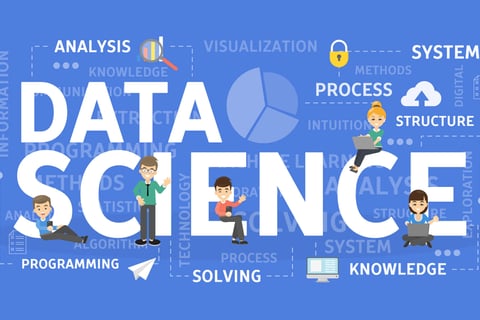Data Science
What is Data Science?
In today’s digital age, data is generated at an unprecedented rate. From social media interactions and online transactions to sensor readings and genomic sequences, the volume and variety of data available to us are staggering. But data on its own is not inherently valuable; it’s what we do with it that counts. Enter data science—a multidisciplinary field that uses scientific methods, algorithms, and systems to extract knowledge and insights from structured and unstructured data. In this blog, we'll explore what data science is, why it matters, and how it is transforming industries around the world.
Introduction
What is Data Science?
Data science combines aspects of computer science, statistics, mathematics, and domain expertise to analyse and interpret complex data sets. The goal is to discover patterns, generate insights, and make data-driven decisions. Here are some key components of data science:
1.Data Collection: Gathering data from various sources such as databases, web scraping, APIs, and sensors
2.Data Cleaning: Preprocessing data to handle missing values, outliers, and noise to ensure the data quality.
3.Data Analysis: Applying statistical methods and algorithms to understand the data and uncover hidden patterns.
4.Machine Learning: Building predictive models using supervised, unsupervised, and reinforcement learning techniques.
5. Data Visualization: Creating visual representations of data findings to communicate insights clearly and effectively.
6. Interpretation and Reporting: Translating data insights into actionable recommendations for decision-makers.
Why is Data Science Important?
1. Informed Decision Making: Data science enables businesses and organizations to make decisions based on data-driven insights rather than intuition or guesswork.
2.Efficiency and Automation: By analyzing data, organizations can identify inefficiencies and automate processes, leading to cost savings and improved productivity.
3.Personalization: Data science allows companies to personalize products and services to individual customer preferences, enhancing customer satisfaction and loyalty.
4. Predictive Analytics: Predictive models help forecast future trends and behaviors, allowing organizations to proactively address challenges and seize opportunities.
5. Competitive Advantage: Leveraging data science provides a competitive edge by uncovering insights that might otherwise remain hidden.
Data science has a wide range of applications across various industries. Here are a few notable examples:
1. Healthcare: Data science is used for predictive modelling in patient care, drug discovery, and personalized medicine. It helps in identifying disease patterns and improving treatment outcomes.
2. Finance: In the financial sector, data science is employed for fraud detection, risk management, algorithmic trading, and customer analytics.
3. Retail: Retailers use data science for inventory management, demand forecasting, customer segmentation, and recommendation systems.
4. Marketing: Marketers leverage data science to optimize campaigns, analyze customer behavior, and improve ROI through targeted advertising.
5. Transportation: Data science helps in route optimization, predictive maintenance of vehicles, and analyzing traffic patterns to improve transportation systems.
6. Entertainment: Streaming services like Netflix and Spotify use data science to recommend content based on user preferences and viewing history.
The Data Science Process
The data science process is iterative and involves several steps:
1.Define the Problem: Understand the business problem and formulate it as a data science problem.
2.Data Collection and Preparation: Gather relevant data and preprocess it to ensure it is suitable for analysis.
3.Exploratory Data Analysis (EDA): Analyse the data to understand its structure, patterns, and relationships.
4.Model Building: Develop and train machine learning models to predict outcomes or uncover insights.
5.Evaluation: Assess the performance of the models using appropriate metrics and validate their effectiveness.
6.Deployment: Implement the model in a production environment where it can provide real-time insights or predictions.
7.Monitoring and Maintenance: Continuously monitor the model's performance and update it as necessary to maintain accuracy and relevance.
While data science offers immense potential, it also comes with challenges:
1.Data Quality: Ensuring the accuracy, completeness, and consistency of data is crucial for reliable analysis.
2. Data Privacy: Protecting sensitive information and ensuring compliance with data privacy regulations is paramount.
3. Complexity: Dealing with large and complex data sets requires sophisticated tools and expertise.
4. Interdisciplinary Skills: Data science requires a blend of skills from different fields, which can be difficult to find in a single individual.
5. Ethical Considerations: Using data responsibly and ethically, especially in AI and machine learning applications, is a growing concern.
Challenges in Data Science


Application Data Science

